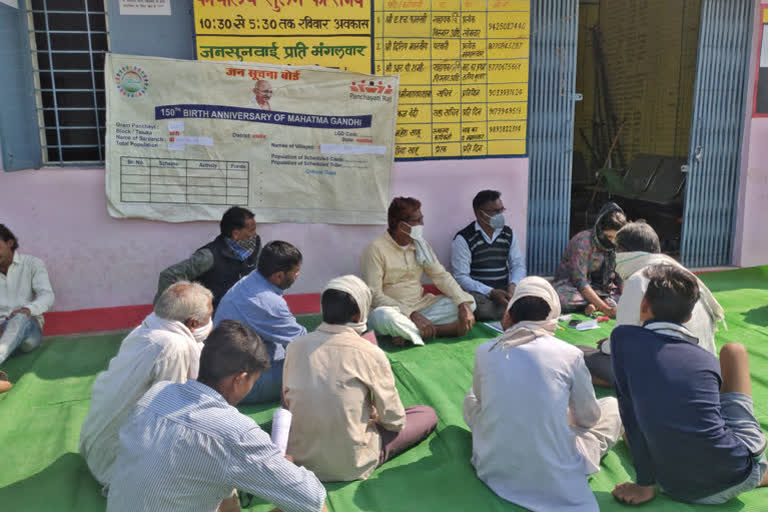Hyderabad: On February 3 last year, the Supreme Court had directed the states, which were yet come out with notifications for establishing ''Gram Nyayalayas'', to do so within four weeks, and had asked the high courts to expedite the process of consultation with state governments on the issue.
DOORSTEP DELIVERY OF JUSTICE
An Act passed by Parliament in 2008 provided for setting up of 'Gram Nyayalayas' at the grassroots level for providing access to justice to citizens at the doorstep and to ensure that opportunities for securing justice are not denied to anyone by reason of social, economic or other disabilities.
The Act came into force on October 2, 2009 -- the day of Gandhi Jayanti and it was considered a fitting day to operationalise such a law.
MAKE-UP OF THE GRAM NYAYALAYAS
The 'Gram Nyayalayas' were to be mobile courts presided over by Nyayadhikaris -- judicial officers functioning as an equivalent of Judicial Magistrates of the first class, and having the same powers. They were to be appointed by the state governments in consultation with the High Court.
Read: Aero India takes off on Feb 3 amidst Covid, buzz around 'Aatmanirbhar Bharat'
The Gram Nyayalayas were to exercise powers of both criminal as well as civil courts. The nyayalayas were to aim for the settlement of disputes to the extent feasible by means of reconciliation. Moreover, Gram Nyayalayas are not bound by the rules of evidence as provided in the Indian Evidence Act of 1872, but subject to rules as framed by respective High Courts. They were to be guided by the principles of natural justice.
They were to have jurisdiction over an area as specified by the state government via a notification, in consultation with the High Court.
THE SORRY STATE:
In September, 2019, an NGO, The National Federation of Societies for Fast Justice, had filed a PIL with the Supreme Court, stating that against a targeted requirement of 2,500 Gram Nyayalayas which were to be established by 2017, only 320 had been notified by 11 state governments. As of September of 2019, only 204 Gram Nyayalayas were functional in India. Further, as many as 18 states chose not to notify any Gram Nyayalayas at all in the past decade.
Read: Alarming rise in waste pile-up in the seas
According to a report published by the Swaniti Initiative, this was the year-wise number of Gram Nyayalayas aimed to be set up:
| YEAR | NO. OF GRAM NYAYALAYAS TO BE SET UP | FUNDS REQUIRED (Rs in crore) |
| 2012-13 | 300 | 119.00 |
| 2013-14 | 300 | 147.00 |
| 2014-15 | 600 | 294.00 |
| 2015-16 | 600 | 350.00 |
| 2016-17 | 700 | 446.00 |
| Total | 2,500 | 1,356.00 |
In response to the PIL, the Supreme Court issued notices to the states as well as the Centre seeking a response. Four months later in February 2020, the Supreme Court directed those 18 states which had not come out with notifications for the establishment of Gram Nyayalayas to do so within four weeks. The respective High Courts were also instructed to expedite progress.
Read: What's In Store Under 'PM Aatmanirbhar Health Scheme'
The apex court also took note of the fact that even among the states which had issued such a notification, barely around half the Gram Nyayalayas were functional.
In the most recently concluded monsoon session of Parliament, the Minister for Law and Justice provided a detailed response on the progress made in the establishment of Gram Nyayalayas in the country. As per the latest records available with the government, 12 states in India have notified 395 Gram Nyayalayas thus far.
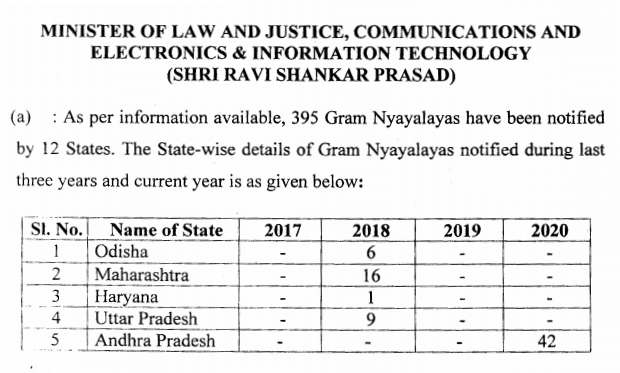
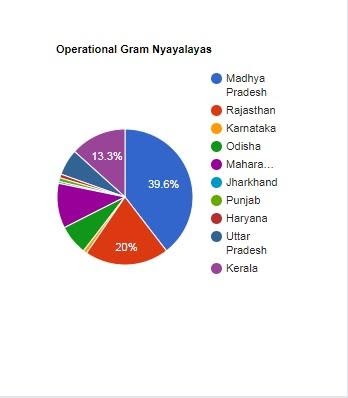
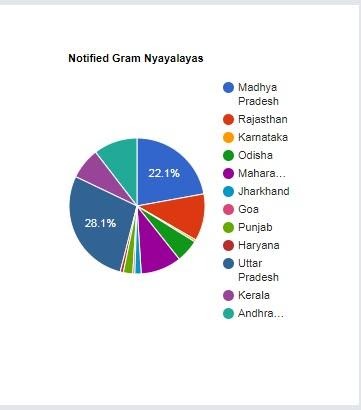
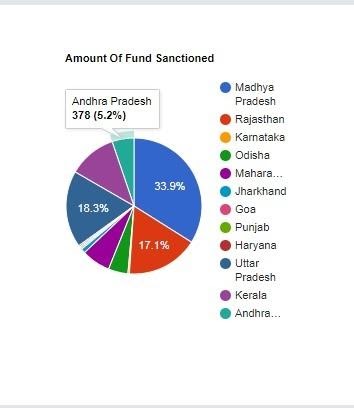
WHAT IS GOING WRONG:
According to reports, a huge factor behind the 'Gram Nyayalaya' idea not gaining the amount of success as envisioned, seems to be the fact that a number of states have established regular courts at the Taluk level over the past few years. As a result, the need for such institutions at the village-level does not arise.
Further, most state governments seem to have side-lined the setting-up of gram nyayalayas, with resource allocation being extremely low or almost non-existent.
However, it also is a fact that lawmakers have never been completely convinced about the 'Gram Nyayalaya' concept. The Parliamentary standing committee in 2007 had said: "The Committee is of the opinion that rule of law cannot be achieved unless courts are created commensurate with the workload of courts. It feels that the creation of more courts, rather than creation of an additional tier would ease out the burden presently experienced by Courts."
